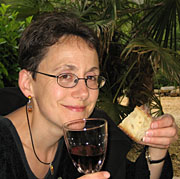Call for papers
Corsham Court, Bath Spa University, UK
29th June – 1st July 2017
The Captivating Criminality Network is delighted to announce its fourth UK conference. Building upon and developing ideas and themes from the previous three successful conferences, Crime Fiction: Detection, Public and Private, Past and Present will examine what is arguably the very heart of this field of critical study.
Crime fiction narratives continue to gain in both popularity and critical appreciation. This conference will consider the ways in which both the public and private aspects of criminality and detection merge and differ from each other. The police detective, bound by laws of the state (however loosely adhered to) brings a different set of skills and methods of detection than the often maverick private eye. Of course, detection includes the criminals who attempt to avoid capture – the term ‘anti-hero’ can apply to both upholders of the law and to those evading it.
A key question that this conference will address is the enduring appeal of crime fiction and its ability to incorporate other disciplines such as Criminology, Film, and Psychology. From the ‘sensational’ novelists of the 1860s to today’s ‘Domestic Noir’ narratives, crime fiction has proved itself exceptionally proficient in expanding its parameters to encompass changes in the wider culture. With this in mind, we are interested in submissions that approach crime narratives from the earliest days of crime fiction up until the present day.
This international, interdisciplinary event is organised by Bath Spa University and the Captivating Criminality Network, and we invite scholars, practitioners and fans of crime writing, as well as interested parties from Criminology, Psychology, Sociology, and Film and Media, to participate in this conference that will address these key elements of crime fiction and real crime.
Topics may include, but are not restricted to:
29th June – 1st July 2017
The Captivating Criminality Network is delighted to announce its fourth UK conference. Building upon and developing ideas and themes from the previous three successful conferences, Crime Fiction: Detection, Public and Private, Past and Present will examine what is arguably the very heart of this field of critical study.
Crime fiction narratives continue to gain in both popularity and critical appreciation. This conference will consider the ways in which both the public and private aspects of criminality and detection merge and differ from each other. The police detective, bound by laws of the state (however loosely adhered to) brings a different set of skills and methods of detection than the often maverick private eye. Of course, detection includes the criminals who attempt to avoid capture – the term ‘anti-hero’ can apply to both upholders of the law and to those evading it.
A key question that this conference will address is the enduring appeal of crime fiction and its ability to incorporate other disciplines such as Criminology, Film, and Psychology. From the ‘sensational’ novelists of the 1860s to today’s ‘Domestic Noir’ narratives, crime fiction has proved itself exceptionally proficient in expanding its parameters to encompass changes in the wider culture. With this in mind, we are interested in submissions that approach crime narratives from the earliest days of crime fiction up until the present day.
This international, interdisciplinary event is organised by Bath Spa University and the Captivating Criminality Network, and we invite scholars, practitioners and fans of crime writing, as well as interested parties from Criminology, Psychology, Sociology, and Film and Media, to participate in this conference that will address these key elements of crime fiction and real crime.
Topics may include, but are not restricted to:
- The Detective, Then and Now
- The Anti-Hero
- True Crime
- Contemporary Crime Fiction
- Victorian Crime Fiction
- The Golden Age
- Hardboiled Fiction
- Forensics and Detection
- The Body as Evidence (silent witness)
- Crime and Clues
- Dostoevsky and Beyond: The Genealogy of Crime Writing
- Fatal Femininity
- Seduction and Sexuality
- The Criminal Analyst
- Others and Otherness
- Landscape and Identity
- The Country and the City
- The Media and Detection
- Adaptation and Interpretation
- Justice Versus Punishment
- Lack of Order and Resolution
Please send 300 word proposals to Dr. Fiona Peters ([email protected]) by 13th February 2017. The abstract should include your name, email address, and affiliation, as well as the title of your paper. Please feel free to submit abstracts presenting work in progress as well as completed projects. Postgraduate students are welcome. Papers will be a maximum of 20 minutes in length. Proposals for suggested panels are also welcome.
Attendance fees: £155 (£105 students)
Attendance fees: £155 (£105 students)
Flash in the Pan: flash fiction panel
Let’s have some fun with a bit of a different panel. I, Hector Duarte, Jr., will discuss a bit of the history of flash fiction. What it is and what it isn’t. What it leaves out and what it leaves up to the reader. Then I will go into some detail of what makes crime flash fiction so and how to make it happen on paper.
The idea for this “panel”—more of a workshop, really—is to get folks participating. What does that mean? Well, get ready to write, gather in groups, and discuss short writing exercises I will be guiding you through. We’re all friends here at Captivating Criminality. What better way to get social than to discuss your own personal pieces of writing?
Bring in a pen, a notebook, and your sinister imagination. Let’s see what happens. A little nervous about the process? No worries. This will take place during the wine reception, which should soften you up some and make for interesting writing. The idea here, folks, is to have fun. I’m looking forward to this session and can’t wait to see where it goes. Cheers. ~ Hector
Hector Duarte, Jr. is a writer out of Miami, Florida. To keep himself financially stable, he teaches English to seventh graders. To keep himself mentally stable, he reads, and writes, as many stories as he can. His work has appeared in Flash: The International Short Story Magazine, Sliver of Stone, Foliate Oak, Shotgun Honey, Shadows and Light: An Anthology to Benefit Women’s Aid UK, The Whimsical Project, Spelk Fiction, HorrorSleazeTrash, Pulp Metal Magazine, and The Rumpus. Hector is a flash fiction editor at The Flash Fiction Offensive.
He has lectured at The Crime Fiction Here and There and Again Conference in Gdansk, Poland; the second and third Captivating Criminality Conferences in Corsham, England, and Theorizing the Popular at Liverpool’s Hope University. He has also moderated panels at Miami Book Fair and the AWP Conference in Los Angeles.
The idea for this “panel”—more of a workshop, really—is to get folks participating. What does that mean? Well, get ready to write, gather in groups, and discuss short writing exercises I will be guiding you through. We’re all friends here at Captivating Criminality. What better way to get social than to discuss your own personal pieces of writing?
Bring in a pen, a notebook, and your sinister imagination. Let’s see what happens. A little nervous about the process? No worries. This will take place during the wine reception, which should soften you up some and make for interesting writing. The idea here, folks, is to have fun. I’m looking forward to this session and can’t wait to see where it goes. Cheers. ~ Hector
Hector Duarte, Jr. is a writer out of Miami, Florida. To keep himself financially stable, he teaches English to seventh graders. To keep himself mentally stable, he reads, and writes, as many stories as he can. His work has appeared in Flash: The International Short Story Magazine, Sliver of Stone, Foliate Oak, Shotgun Honey, Shadows and Light: An Anthology to Benefit Women’s Aid UK, The Whimsical Project, Spelk Fiction, HorrorSleazeTrash, Pulp Metal Magazine, and The Rumpus. Hector is a flash fiction editor at The Flash Fiction Offensive.
He has lectured at The Crime Fiction Here and There and Again Conference in Gdansk, Poland; the second and third Captivating Criminality Conferences in Corsham, England, and Theorizing the Popular at Liverpool’s Hope University. He has also moderated panels at Miami Book Fair and the AWP Conference in Los Angeles.
Keynote speakers
Professor Mary Evans
|
We are delighted to welcome back Prof. Mary Evans to Captivating Criminality as keynote speaker. Mary is LSE Centennial Professor at the Gender Institute, UK, and has previously taught Women’s Studies and Sociology at the University of Kent. In her sociological research, Prof. Evans looks at the role of narratives in our constructions of meaning and identity in society, and has a particular interest in what we term ‘fiction’ and the role this plays in these constructions. Prof. Evans’s long publications list includes Imagination of Evil. Detective Fiction and the Modern World (2011), a fascinating examination of the relationship between detective fiction (especially the figure of the detective) and the ‘morality’ of real life crime and other social issues, which asks what the figure of ‘the detective’ stands for. Mary is also co-editor of The Sage Handbook of Feminist Theory and her latest publication is entitled The Persistence of Gender Inequality.
|
Sophie Hannah
|
Sophie Hannah is an internationally bestselling writer of psychological crime fiction, published in 32 languages and 51 territories. In 2014, with the blessing of Agatha Christie’s family and estate, Sophie published a new Hercule Poirot novel, The Monogram Murders, which was a bestseller in more than fifteen countries. In September 2016, her second Poirot novel, Closed Casket, was published and became an instant Sunday Times top ten bestseller.
In 2013, Sophie’s novel The Carrier won the Crime Thriller of the Year Award at the Specsavers National Book Awards. Two of her crime novels, The Point of Rescue and The Other Half Lives, have been adapted for television and appeared on ITV1 under the series title Case Sensitive in 2011 and 2012. |
Professor Gill Plain
|
Gill Plain is Professor of English Literature and Popular Culture at the University of St Andrews. Her publications include Women’s Writing of the Second World War (1996), Twentieth-Century Crime Fiction: Gender, Sexuality and the Body (2001), Ian Rankin's Black and Blue: A Reader's Guide (2002), John Mills and British Cinema: Masculinity, Identity and Nation (2006) and Literature of the 1940s: War, Postwar and ‘Peace’ (2013). She has also edited collections including A History of Feminist Literary Criticism (2007), Scotland and the First World War (2017) and a special issue of Clues on Scottish crime fiction (2008). She is currently editing Postwar: British Literature in Transition, 1940-1960. As current Head of the School English she is not writing a book; but hopes, when released, to start work on a new monograph exploring narrative reconstructions of masculinity in the aftermath of the Second World War.
|




